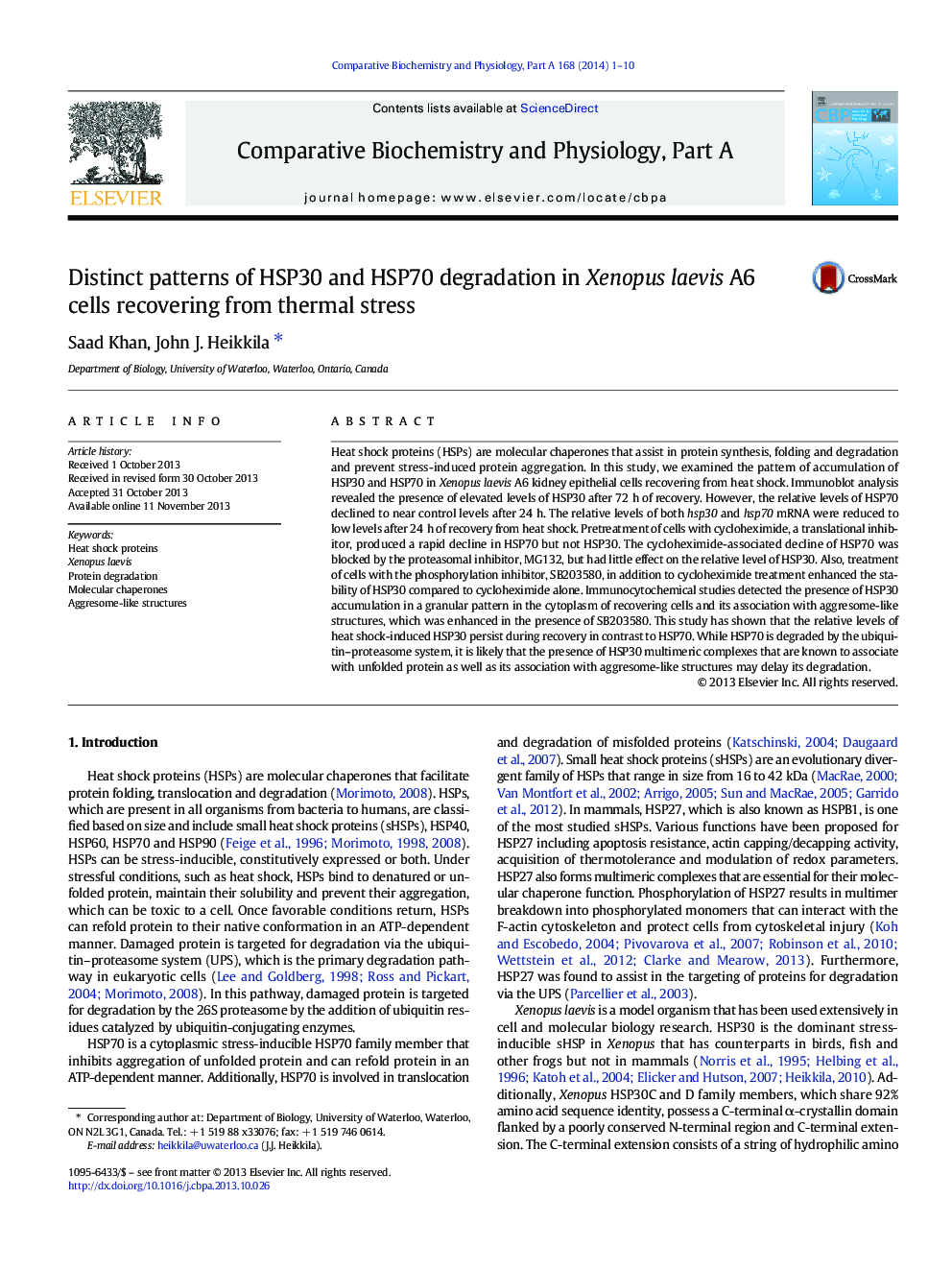| Article ID | Journal | Published Year | Pages | File Type |
|---|---|---|---|---|
| 1972256 | Comparative Biochemistry and Physiology Part A: Molecular & Integrative Physiology | 2014 | 10 Pages |
Heat shock proteins (HSPs) are molecular chaperones that assist in protein synthesis, folding and degradation and prevent stress-induced protein aggregation. In this study, we examined the pattern of accumulation of HSP30 and HSP70 in Xenopus laevis A6 kidney epithelial cells recovering from heat shock. Immunoblot analysis revealed the presence of elevated levels of HSP30 after 72 h of recovery. However, the relative levels of HSP70 declined to near control levels after 24 h. The relative levels of both hsp30 and hsp70 mRNA were reduced to low levels after 24 h of recovery from heat shock. Pretreatment of cells with cycloheximide, a translational inhibitor, produced a rapid decline in HSP70 but not HSP30. The cycloheximide-associated decline of HSP70 was blocked by the proteasomal inhibitor, MG132, but had little effect on the relative level of HSP30. Also, treatment of cells with the phosphorylation inhibitor, SB203580, in addition to cycloheximide treatment enhanced the stability of HSP30 compared to cycloheximide alone. Immunocytochemical studies detected the presence of HSP30 accumulation in a granular pattern in the cytoplasm of recovering cells and its association with aggresome-like structures, which was enhanced in the presence of SB203580. This study has shown that the relative levels of heat shock-induced HSP30 persist during recovery in contrast to HSP70. While HSP70 is degraded by the ubiquitin–proteasome system, it is likely that the presence of HSP30 multimeric complexes that are known to associate with unfolded protein as well as its association with aggresome-like structures may delay its degradation.
